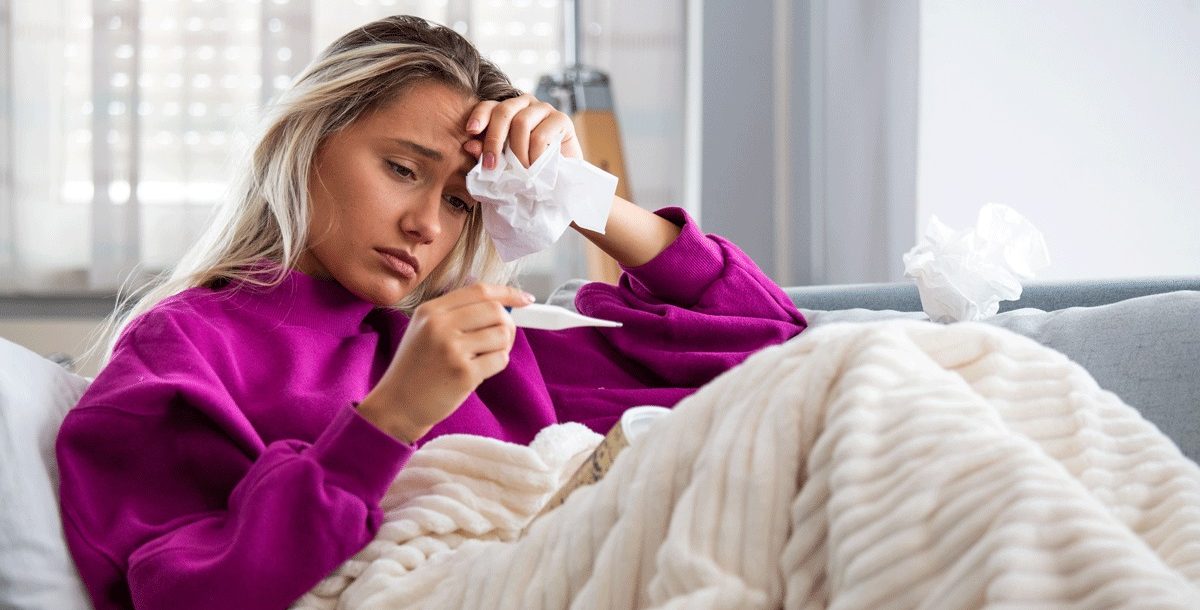Preventing the spread of COVID-19 with social distancing is an important focus in our communities right now. However, what happens if you or a loved one do end up getting sick with the virus?
No need to panic! We are here with the information you need to best protect everyone’s health.
Stay home
Individuals who are experiencing COVID-19 symptoms should stay home unless they are seeking medical care. Most cases of COVID-19 are mild and the person should be able to recover at home.
Call your health care provider
If you think you have COVID-19, call your primary care provider. They will be able to advise you on the best steps to take. If you do not have a primary care provider, Mercy Health is offering 24/7 COVID-19 video visits.
Isolate from others
In addition to staying home, the sick individual should isolate themselves from the people they are living with. Have the person stay in a separate bedroom and use their own bathroom. Everyone else in the household should avoid these areas.
If separate space is not possible, make sure any shared rooms have good ventilation. Also, make sure the person who is sick cleans and disinfects after themselves regularly. If the sick person is too weak to clean and disinfect, their caregiver should do it for them after waiting a little while to do so.
While there is not confirmation that those with COVID-19 can pass the virus to animals, it is advised to limit contact with pets if you are sick.
Wear a face covering
If you are receiving care, wear a face covering to protect those around you. This includes if you leave the house to see a doctor or if your caregiver enters your isolation area at home.
Cover coughs and sneezes
Cover all coughs and sneezes with a tissue. When you are done using a tissue, dispose of it in a lined trash can. Then immediately wash your hands.
This trash can should be for the sick individual to use only. When the trash is full, a caregiver should wear gloves while disposing of the lining and then wash their hands immediately.
Avoid Sharing
Anyone with COVID-19 should avoid sharing items like towels, bedding and sheets. These items should be washed thoroughly after use with soap and hot water in a washing machine.
A sick individual should not share glasses, plates or silverware with others either. They should eat alone in their isolated area. After they are done using these items, the caregiver should wash them with hot water and soap while wearing disposable gloves. These items can also be disinfected in a dishwasher.
Manage your symptoms
Monitor your fever with a thermometer and use over-the-counter medicines to treat any COVID-19 symptoms individually. If your symptoms begin to increase in severity, contact your doctor.
The emergency warning signs for COVID-19 include difficulty breathing, blue face or lips, and consistent chest pressure or pain. If you or a loved one is experiencing any of these symptoms, seek medical care immediately.
Knowing when it is safe to end isolation
In the absence of a test, you can end isolation under all these conditions:
- You have not experienced a fever for the past 72 hours.
- Your other symptoms have lessened in severity.
- It has been at least seven days since your first signs of symptoms
You will need to be tested to determine if you are still contagious under this entire set of conditions:
- Your fever has subsided without the use of medication to reduce it.
- You have seen improvement in other symptoms like coughing or shortness of breath.
- You have tested negative via two separate tests that were taken 24 hours apart.
Stay in touch with your health care provider and consult with them about when to end your isolation. It is also important to stay informed on the Centers for Disease Control and Prevention’s information surrounding COVID-19 as directions change and new facts are learned.
Stay updated on what Mercy Health is doing related to COVID-19.






